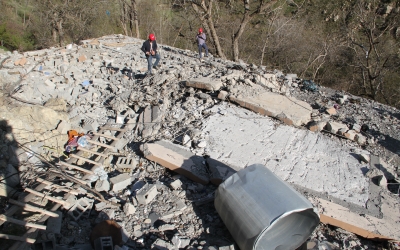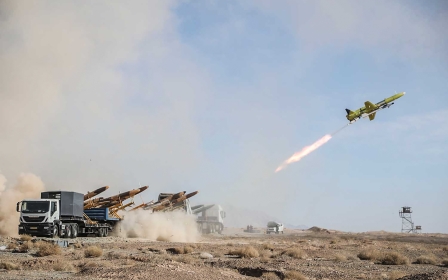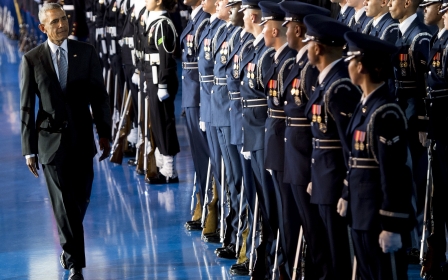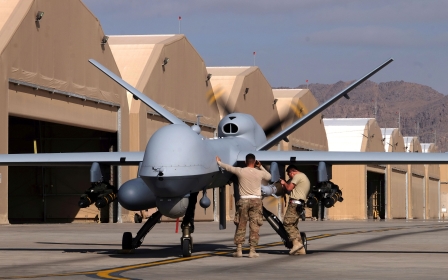Arms campaigners call on UK companies to stop supplying Turkish drone parts
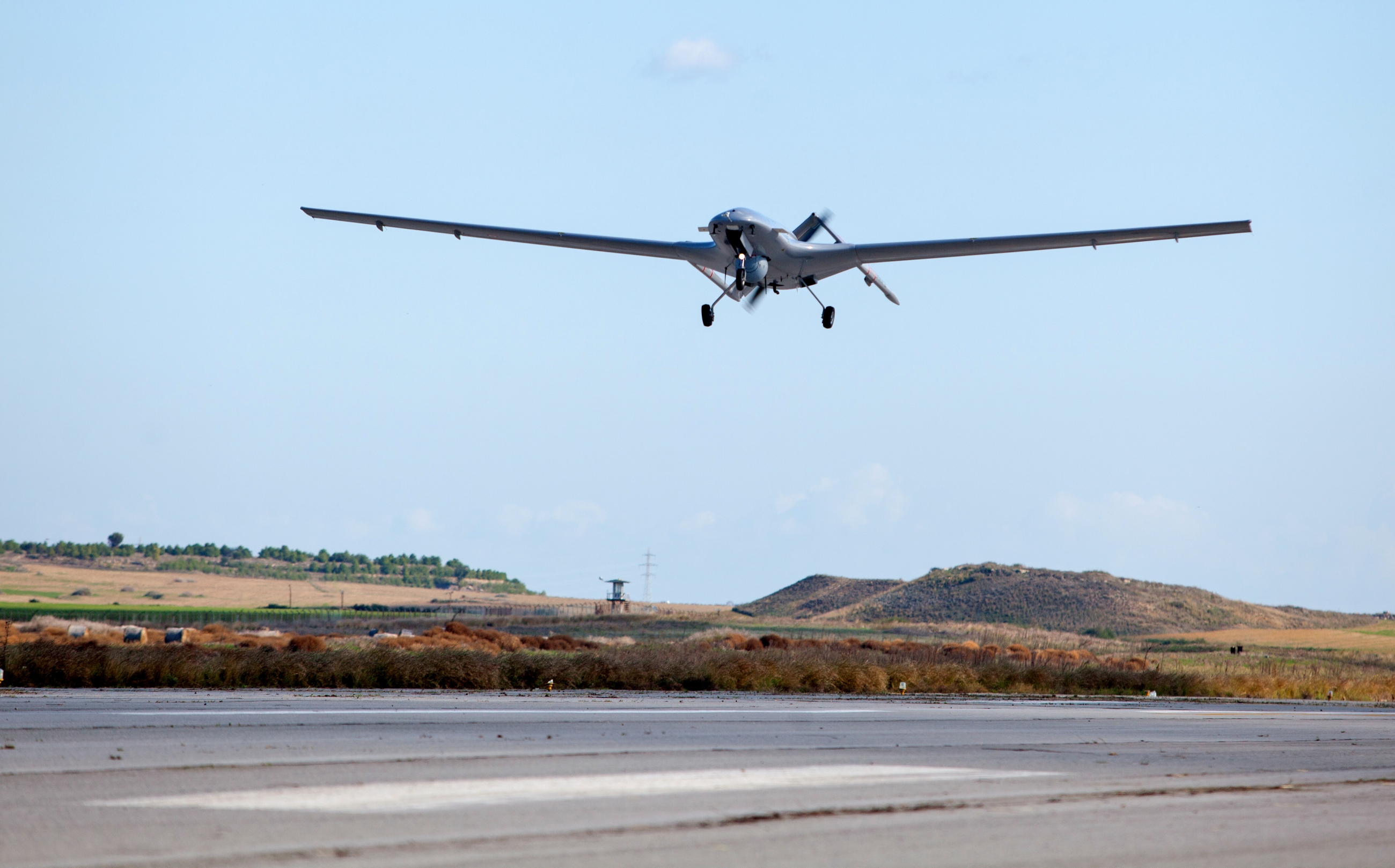
Rights groups have called on UK companies to stop providing parts for Turkish drone aircraft, following an announcement earlier this week by UK aviation company Andair that it would no longer export to Ankara after its technology was discovered to have been used in the Nagorno-Karabakh conflict.
In a statement on Monday, Andair said it was approached by representatives of the Armenian embassy in the UK who requested that they stop supplying products to Turkey's leading aviation company, Baykar Makina, as they were being used in the disputed region.
"After an investigation it was apparent that this was the case and Andair immediately halted supply and cancelled all orders from Baykir Madina," read the statement.
In November, Azerbaijan and Armenia signed a Moscow-brokered deal ending a six week conflict over the breakaway Nagorno-Karabakh region.
Baku's forces largely overpowered the Armenian forces with the aid of weaponry and technology supplied from Turkey and Israel, including armed drones.
New MEE newsletter: Jerusalem Dispatch
Sign up to get the latest insights and analysis on Israel-Palestine, alongside Turkey Unpacked and other MEE newsletters
Turkish television has previously gone as far as saying Turkish drones "turned the tide" of the conflict.
Brighton Against the Arms Trade (BAAT) on Thursday said that other British companies should follow Andair's example and cease "supplies of critical technology to Turkish killer drones".
They specifically referenced the company EDO MBM Technology, located in Brighton, which devised the Hornet missile rack - a crucial component in armed drone technology - and supplied it to Turkish companies.
"Unlike Andair, this technology was knowingly supplied to Turkey for use on the Bayraktar TB2 drone," they said.
"BAAT calls for a full investigation of EDO MBM's exports to Turkey and the immediate end of its supplies to the Bayraktar TB2, or any other Turkish weapons system."
The group pointed to a 2020 Freedom of Information request fulfilled by to the UK's Department of International Trade (DIT) confirming 18 Standard Individual Export Licences (SIELs) had been approved for EDO MBM to export Hornet bomb racks and related components and technology to Turkey between 2014 and 2020.
'Inaccurate and indiscriminate weapons'
Nagorno-Karabakh has repeatedly been engulfed in conflict ever since the early 1990s, when the ethnic Armenian majority in the then Azerbaijan-controlled enclave broke away and declared the establishment of an independent republic.
Tens of thousands of people have died since then, while there have been accusations of ethnic cleansing on both sides.
Amnesty International has said that 146 civilians died in the recent Karabakh conflict, which claimed the lives of more than 6,000 people in total.
On Thursday, the human rights group called on Azerbaijan and Armenia to investigate the use of "inaccurate and indiscriminate weapons" in heavily populated civilian areas during the fighting.
Amnesty said there was "clear evidence" that both sides targeted civilians in the conflict, despite denials.
In a news release, the group said it had analysed "17 strikes by Armenian and Azerbaijan forces which unlawfully killed civilians".
"Civilians were killed, families were torn apart and countless homes were destroyed," said Marie Struthers, the rights group's Eastern Europe and Central Asia director.
"Attacks were repeatedly carried out on civilian residential areas far from frontlines, and where there often did not appear to be any military targets in the vicinity."
Middle East Eye delivers independent and unrivalled coverage and analysis of the Middle East, North Africa and beyond. To learn more about republishing this content and the associated fees, please fill out this form. More about MEE can be found here.


